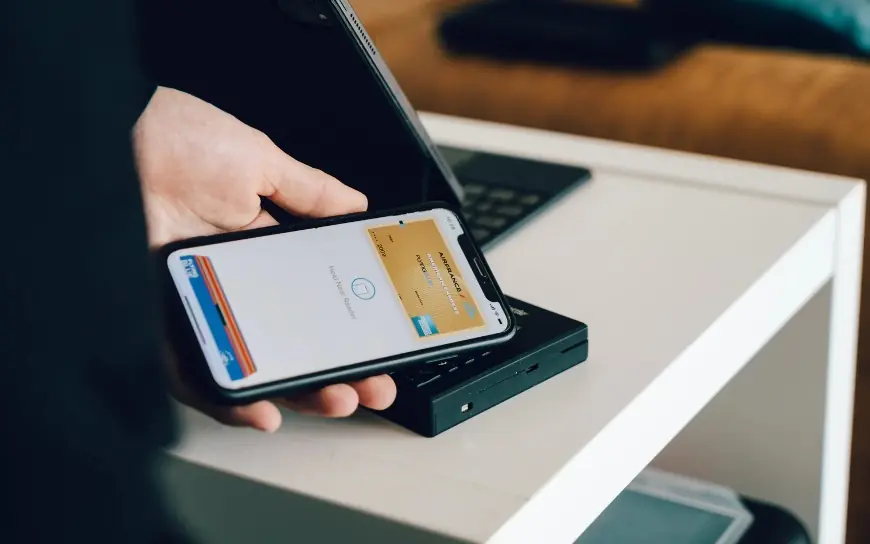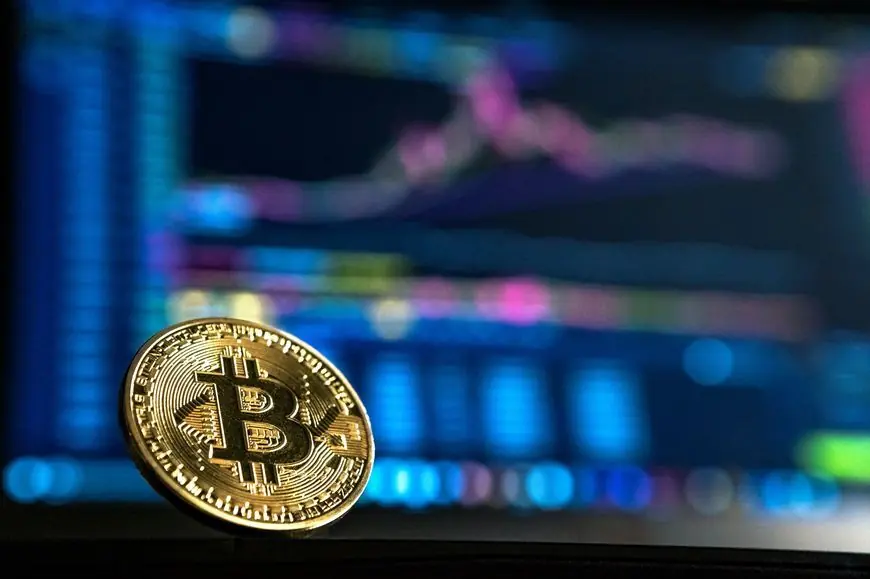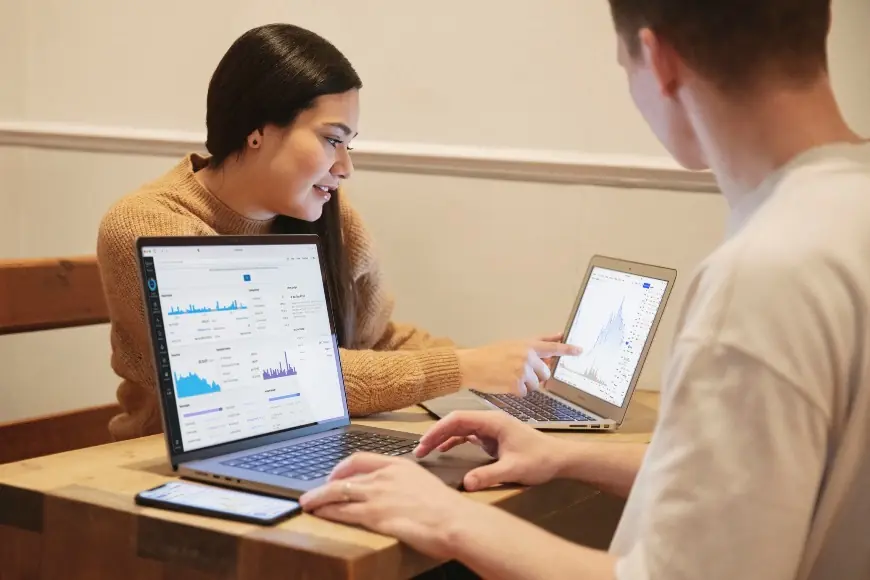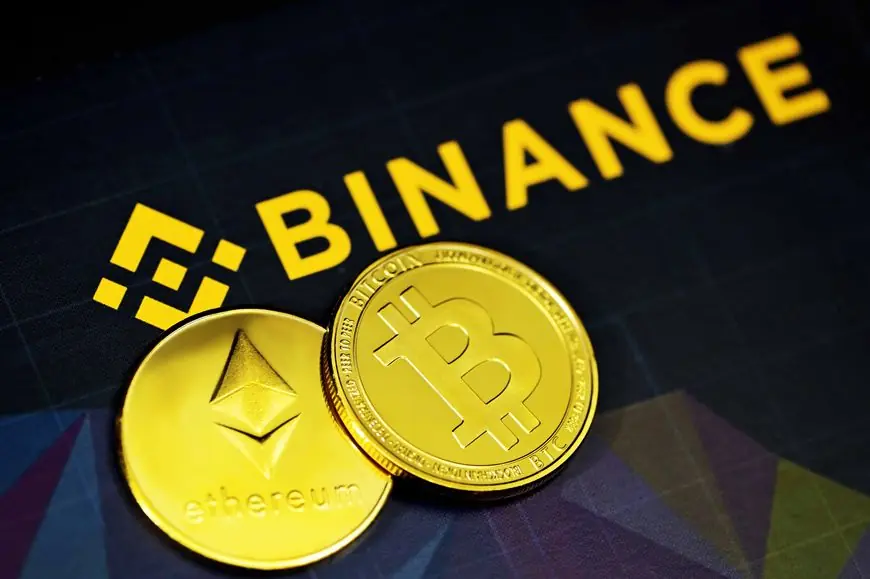
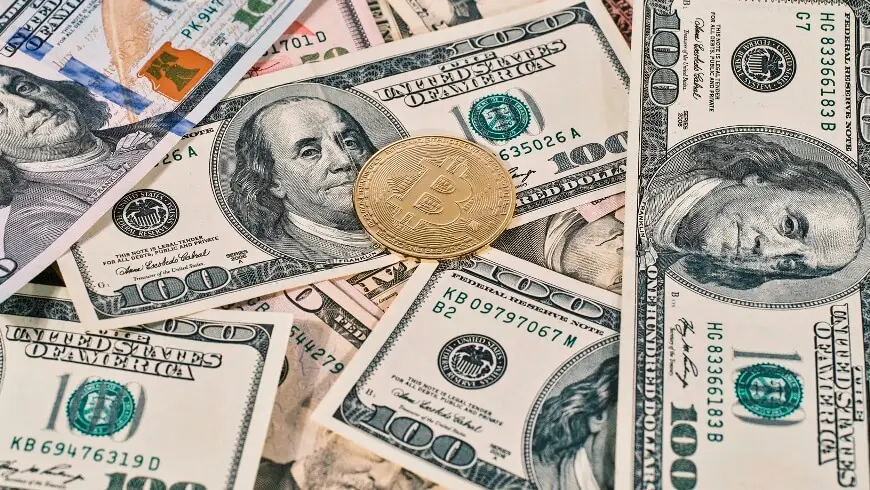
How to Invest in Bitcoin Futures – In-Depth Guide for Inexperienced Traders
Introduction
Bitcoin (BTC) is a digital currency that exists and operates on a virtual network using a distributed ledger mechanism (blockchain). Unlike fiat money, which is issued by public authorities, digital tokens are issued through a mining process where authorized network nodes solve complex mathematical puzzles to ensure transaction security.
The issued bitcoins are stored in an electronic wallet, which is a special program running on a PC or in a cloud service. Given this storage feature, BTCs are not insured by the FDIC or SIPC (since they cannot be transferred to a bank, brokerage, or futures account).
Despite that, cryptocurrency-hungry investors are taking advantage of a new opportunity by using BTC contracts, as well as agreements to buy/sell bitcoins at a previously-agreed price. So, this way of investing is quite different from direct cryptocurrency investing. We are here to tell you how to invest in Bitcoin futures and what pitfalls you might encounter with this rather risky activity.
What are Bitcoin futures?
Bitcoin futures (BF) are pretty much the same as contracts on certain underlying assets, such as goods, currencies, or commodities. In fact, they are a type of secondary asset. It works like a contract to buy/sell some asset with a deferred performance under that contract.
By investing in BTC futures, you gain access to the cryptocurrency without having to keep the tokens in your possession. You can buy monthly contracts on the CME taking cash when settling the contract instead of receiving bitcoins. So, here are some key takeaways from bitcoin contracts:
-
Like many cryptocurrencies, BTC is characterized by high volatility, which makes investing in contracts a very risky venture.
-
The appeal of BF is that they allow investors to speculate on the future value of tokens.
-
There are many platforms that allow you to trade monthly BF. There are both regulated and unregulated exchanges.
Cboe was one of the first exchanges to offer a Bitcoin futures contract in 2017. The CME platform saw the light of day in 2017 and offered an additional tool in the form of microbitcoin futures (10% of 1 BTC). Today, there are many other platforms offering daily and monthly contracts with the physical delivery of digital tokens.
Deeper understanding of Bitcoin futures investing
Given the nature of bitcoin contracts, they serve multiple purposes in the global financial market. Futures trading has a number of advantages over trading with the underlying assets. The main advantage is that such trading is regulated by the CFTC, so this activity is attractive even to large institutional investors.
As for the direct trading of crypto tokens, it is outside of regulation, so it is very risky for institutional investing. In addition, no crypto wallet is required to trade BF, as all settlements are made in cash. Considering the highly volatile nature of digital tokens, you will realize how important it is to trade without actually owning digital money. (Even storing tokens is a very costly task).
Last but not least, there are price and position limits on contracts, which adds an extra layer of protection against high risk. So, here are the three main uses of bitcoin futures:
-
To hedge positions on the spot market with the option of shorting BF as a hedge, allowing you to profit even if the price moves in the opposite direction to that specified in the contract.
-
To lock in the value of the token, which is especially important for miners looking to at least recoup their investment in mining equipment and electricity, regardless of which way the price goes.
-
For short-term or long-term profits for traders and speculators.
Notably, from October 2021, traders can utilize BTC without directly buying BF. This is made possible by the launch of the first Bitcoin ETF.
Where can you trade Bitcoin futures?
So, now that you know how to invest in Bitcoin futures, it’s time to figure out where to trade. Crypto exchanges were the first to offer a new opportunity for traders and investors. However, due to the lack of regulation, they did not attract much attention from the big players in the market.
The situation changed dramatically with the launch of futures trading on CME and Cboe. While the latter has suspended trading, for now, CME continues to gain momentum, offering some additional features such as microbitcoin contracts. In addition, there are several other platforms worth considerations:
-
Bakkt is a platform maintained by Intercontinental Exchange, offering a wide range of trading options including BF trading with physical delivery of crypto tokens.
-
ErisX is another platform offering the opportunity to invest in Bitcoin futures with limited exposure thanks to the introduction of limits.
-
OKEx is one of the world’s largest trading platforms supporting BTC futures.
In addition, there is Binance, the Malta-based platform which leads the way in terms of the number of contracts. However, the lack of regulation is one of its major drawbacks.
How does Bitcoin futures trading work?
Although it is a fast-growing and very promising area, BTC futures trading is still in its infancy. With the lack of a deep pool of liquidity and an insufficient number of participants, futures trading has much in common with BTC spot markets.
Due to the lack of a uniform regulatory framework, this activity is still extremely risky. In addition, the value of BF is directly related to the value of Bitcoin, a highly volatile asset that is subject to investor perception and various news events.
Keeping all of the above in mind, you should take a responsible approach to BF trading. So, here are some points worth consideration:
-
To start trading, you need to register an account with a brokerage company or an exchange.
-
You can expect leverage that changes over time. For example, in 2019 you could get leverage of 125 times the transaction amount, while in 2022 it has been significantly reduced (the example was taken from Binance, a leader in Bitcoin futures).
-
There are different margin requirements at the exchanges. In simple terms, the margin is the minimum amount in your account needed to enter into a contract. For example, you may be given 50% of the margin required to enter into a contract.
To understand how to invest in Bitcoin futures, you must also be able to read the details of the contracts. For example, you want to buy two BF contracts worth 20 BTC in total. When you buy the contract, the value of 1 BTC is $6,000, which means that the total value of the two contracts is $120,000.
Let us assume that the margin requirement of the exchange is 40%. This means that you have to deposit $48,000 in your account. The rest of the cost is covered by leverage. By tracking the value of the tokens, the investor can keep the contracts or sell them to another market participant.
As the contracts are time-limited, they can be extended at the end of the term or a corresponding cash payment can be received. As some platforms offer a physical settlement of contracts, this means that you will receive a payout in digital tokens instead of fiat money.
Summary
With strong price fluctuations and many bubbles, Bitcoin has a mixed reputation with investors. For example, many large institutional investors are not even considering investing directly in BTC. However, crypto futures being a partially regulated market has been a game-changer.
Despite this, contracts have still not proven to be a truly effective tool to protect against the volatility of the underlying asset, so this trading direction is also very risky.
F.A.Q.
What are futures?
It is an agreement to buy or sell an underlying asset with a deferred liability.
What is the difference between futures and the direct purchase of tokens?
Instead of holding BTC directly, you will hold contracts, which add a layer of security protecting you from the volatility of the underlying asset.
Is investing in futures worthy of consideration?
Although it is a safer form of trading, there are high risks of investment loss, so a thorough understanding of the nature of BTC is required.
Is it a profitable venture?
Because the price line is steeper than on the spot market, it promises much higher profits.
Is it better than a spot?
With an average monthly turnover of $2 trillion, it is a much larger market than the spot one.
What does it take to succeed in this line of investment?
You need to keep abreast of all market developments by studying charts, reading news and commentary from opinion leaders.
